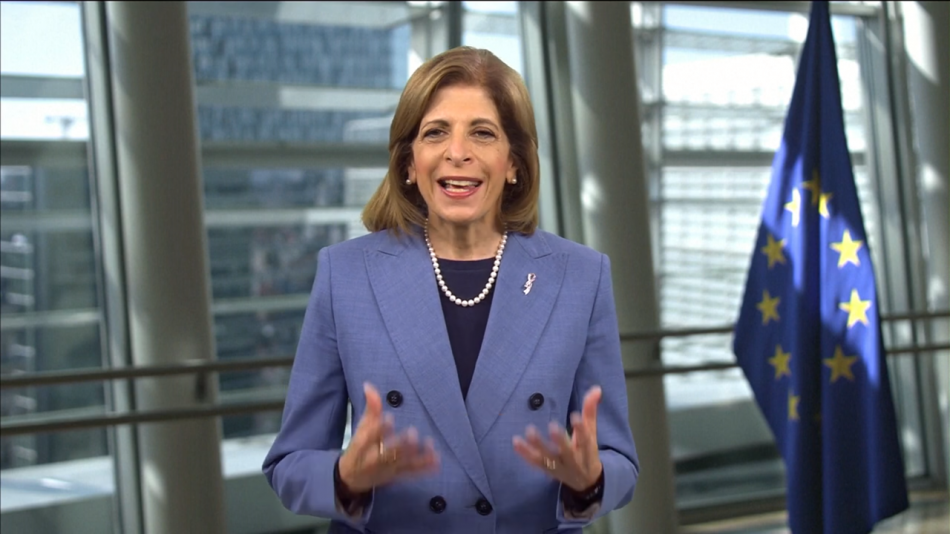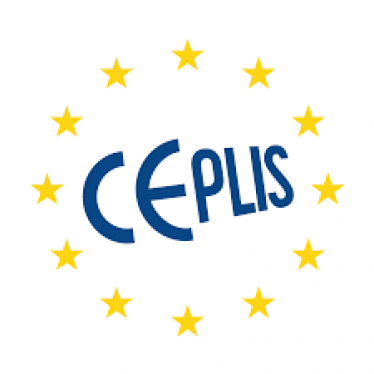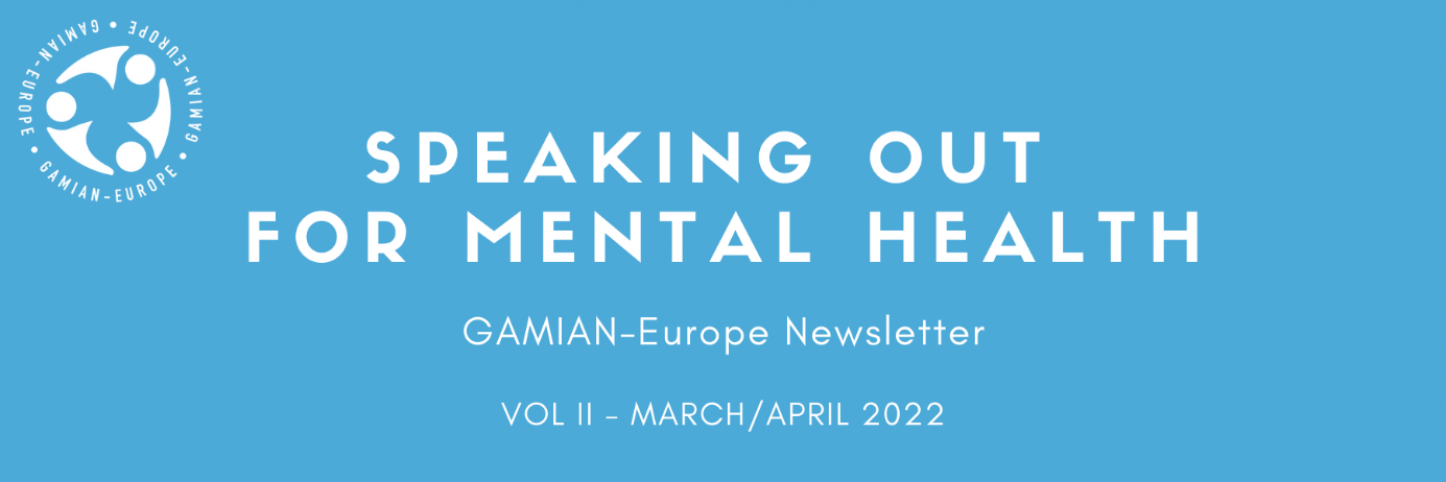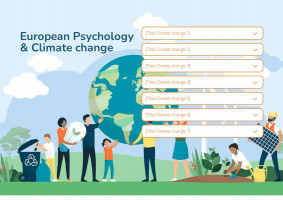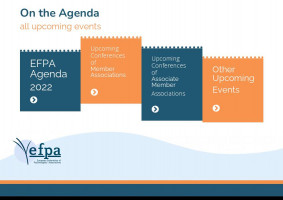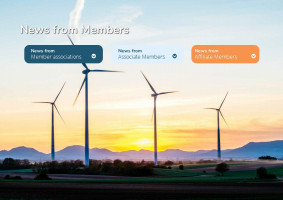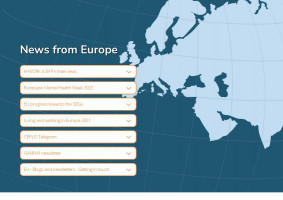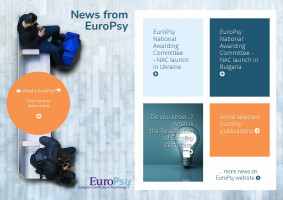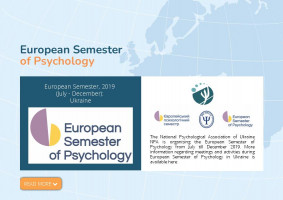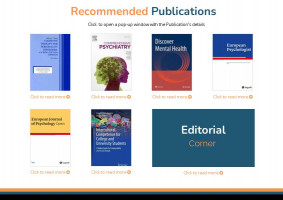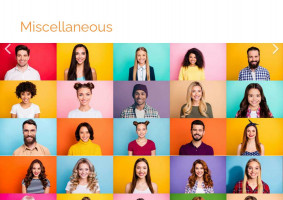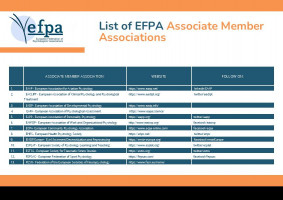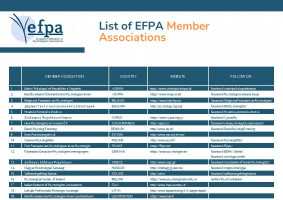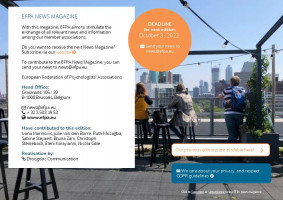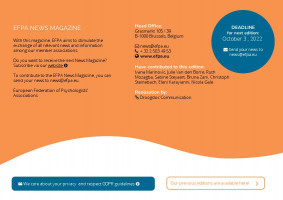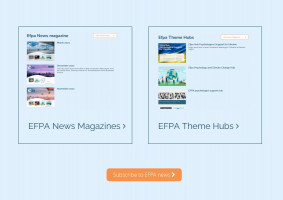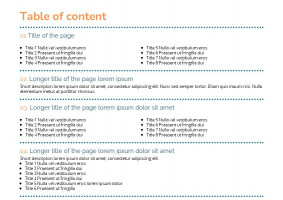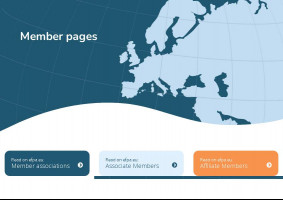Interview Lilly Paulin from TU Braunschweig
1. What is the role of your organization in the H-Work Project?
TU Braunschweig is a public university in Northern Germany with over 6000 employees. Our special feature as a test site is that we as the H-Work team are part of the organization and therefore very close to the employees. The employees at the TU Braunschweig mainly come from the administration and the research & education area, which results in very different references to the topic of mental health in the workplace.
2. What is your role within the project?
As a research team of psychologists, health scientists, and psychotherapists, we conduct the H-Work interventions at the TU Braunschweig and are also project coordinators of the German test site. Accordingly, we accompany the entire process of intervention planning, implementation, and evaluation and can directly refer to it in practice.
-
Presentation of the team and role in the H-Work project
3. Can you present us your team?
Prof. Dr. Beate Muschalla is a professor of Clinical Psychology and Psychological Psychotherapist and is the H-Work project leader at the TUB site. Her research focuses on work-related mental disorders and work ability, work anxiety and workplace phobia. Through years of working as a psychotherapist, she also knows the practical side of treatment and can combine both in the H-Work project.
M. Sc. Lilly Werk has been involved in the H-Work project as a research assistant and PhD student since the beginning and mainly carries out the interventions at the TUB site. Meanwhile, as a psychotherapist in training, she can give trainings for coping with mood and anxiety problems, also work-related practical problems.
Dr. Nora M. Laskowski is especially responsible for the communication with the H-Work partners and the activities for process measurement. She combines the knowledge of research and practice with a focus on pathological buying, internet use disorder, student health and work-related mental disorders.
Melina Naujoks is a student assistant in psychology and can thus apply her knowledge from her studies directly in organizational and coaching practice.
4. What is the impact of COVID on the work of your organization for the H-Work project?
Due to the COVID pandemic, we offered most of the interventions in 2021 as an online option, so the group seminars and much of the individual coaching took place online. Many of the TUB employees went home office partially or completely during the pandemic. This new way of organizing work presented some challenges, such as combining childcare, homeschooling, and work, which some employees made a topic of in the individual coaching processes. Otherwise, the effect of the pandemic at our test site was quite small, as the university reacted quickly to the new situation and alternative communication channels were created.
5. What has your team accomplished in the project so far (results)?
We implemented a total of three different intervention concepts, all of which were very well received by the employees.
Mental Health Awareness Trainings have been done for managers who would like to learn about managing mental health in the workplace. Managers were able to speak about own difficulties in handling employees mental health problems, they were taught some basics about mental health at work, and were shown possible courses of action, and limits.
The Positive Resources + seminar was also a group offering designed to help participants identify and awaken their strengths and resources. Focusing on the positive aspects of work instead of the problems opened up a new perspective on everyday work for many employees.
The most frequently attended offering is individual coaching, which takes place in three sessions on a one-to-one setting. Employees can bring individual work-related issues to be worked on in a behavior-oriented manner. Small homework assignments between sessions are designed to facilitate implementation in everyday life and directly provide for behavior changes.
6. What are you currently working on and what are the next steps?
The individual coachings are still running and are used by the employees with pleasure, sometimes several times for different concerns. We will conduct interviews in the near future to find out from the intervention participants whether the content of the training can also be applied sustainably in everyday life. It will be exciting to talk to the participants again after more than 6 months to find out how they would evaluate the interventions after a longer time has passed.
7. What are your expectations regarding the outcomes of the project?
The feedback on the interventions was very positive, which is why it would be nice if the evaluations also showed that the participants' coping resources and work-related skills were higher after the trainings than before the trainings. What has already become clear is the need for complementary individual interventions to the existing group offers. This allows employees to talk about their individual problems in a protected setting and work on them specifically. We also need such services beyond the scope of the project at TU Braunschweig.
8. What are currently the main obstacles for your work in general and in the project?The bureaucratic hurdles of the public organization proved to be a main obstacle. For the approval of the project steps, it is necessary to involve many different councils and committees, which results in long communication rows and waiting times that have to be taken into account in project management. Another obstacle was the accessibility of participants. Due to the size of the university, there is an overflow of e-mails, which means that information is quickly lost in the masses and care must be taken to forward and read the relevant project information.
9. What is the biggest strength of your organization in advancing the project?
It is a great help that structures already existed at the TUB before the project through the occupational health management, which greatly facilitated the implementation of new interventions. We have a very committed, friendly colleague in the management of OHM who is always available to us with advice and support.
10. How do you think your organization and EFPA can collaborate in the H-Work project?EFPA offers a great platform for exchange of ideas on work-mental health throughout Europe! Do not hesitate to contact our team for future project ideas or exchange of work-health-related ideas.
M.Sc. Lilly Werk l.werk@tu-bs.de & Prof. Dr. Beate Muschalla b.muschalla@tu-braunschweig.de.

Interview Vince Pelzer and Maggie van den Heuvel of University of Amsterdam (UvA)
1. Can you present us your team and the role of the members in the H-Work Project?
Of course! The UvA-team has 4 members in total: Vince Pelzer, Maggie (Machteld) van den Heuvel, Roy Sijbom, and Edwin van Hooft. Even though everyone is doing a bit of everything in our team, we are all experts on different areas.
-
Presentation of the team and role in the H-Work project
1. Can you present us your team and the role of the members in the H-Work Project?
Of course! The UvA-team has 4 members in total: Vince Pelzer, Maggie (Machteld) van den Heuvel, Roy Sijbom, and Edwin van Hooft. Even though everyone is doing a bit of everything in our team, we are all experts on different areas.
Vince’ brings knowledge on both work and organisational psychology as well as behavioral change interventions to the project. Vince manages the day-to-day H-WORK activities , including contact with all partners and managing the H-WORK deadlines. As a PhD-student, Vince is learning a lot from all the different aspects of such a big international project, and really enjoys to manage all different H-WORK tasks.
Maggie is assistant professor and brings expertise on occupational health psychology, positive psychology, intervention studies, training & leadership coaching. For H-WORK Maggie mainly manages the development and implementation of the H-WORK interventions in our two test-sites. She also contributes theoretical and methodological knowledge for the various studies in the Netherlands. Maggie enjoys translating theory into practise, connecting academia and organisations (as she enjoyed doing for H-WORK), and helping both individuals, teams and leaders to grow and optimise health and well-being.
Roy is an assistant professor and his expertise is mainly in the areas of leadership, burnout, learning climate, motivation. Roy supports the H-WORK project using his theoretical and methodological knowledge and project management skills. He is structured and helps to achieve H-WORK project goals.
Edwin is full professor. His main areas of expertise are motivation and self-regulation, job search, boredom, learning goals, multilevel studies and intervention research. Edwin contributes to H-WORK both on the overall project management side as well as the theoretical and methodological side of the studies we conduct in the Netherlands. He also has in-depth knowledge of one of our test sites and has extensive experience with running intervention studies in organisations.
2. What is the role of your organization in the H-Work Project?
The University of Amsterdam (UvA) is responsible for Work Package 4 (WP4): the implementation of H-WORK interventions. This means that we manage the implementation of interventions in the different test sites, organise group calls to discuss progress and to see whether a project partner needs help somewhere.
3. What has your team accomplished in the project so far (results)?
As lead of WP4, we have compiled several reports for the EU to show the progress of each test site. This means that we collected valuable implementation-data from each test-site, including aspects such as key components of interventions, number of participants reached, whether interventions were implemented according to the protocol et cetera. These deliverables gave insight in how the interventions were implemented and what aspects of the implementation were most important. This document also helped us to monitor the progress of each partner with their test-sites.
Furthermore, UvA collaborates with two Dutch test-sites as well. So far, we have developed and implemented the strengths-based team-crafting intervention with various project teams at our test-site Rijkswaterstaat, a large public organization focused on infrastructure and water management. Also, we are using Sociomapping with two departments within the UvA.
In addition, we have made progress on the H-WORK Implementation Toolkit (HIT), where all the H-WORK interventions will be described. This will later be completed once we have the full information and working ingredients of all H-WORK interventions.
4. What are you currently working on and what are the next steps?
The next steps are practical: continuing the implementation of the various interventions in our Dutch test sites, as well as monitoring the implementation of the interventions in the test-sites of our H-WORK partners. Besides team crafting sessions, leadership coaching and sociomapping, we are developing a career crafting training for junior teachers at UvA, and we will start the implementation of these training sessions before the summer if all goes according to plan.
Furthermore, we are continuing to develop the HIT-toolkit by including more H-WORK interventions, and by aligning our goals for this toolkit with Work Package 6: dissemination. This is important because we want to stimulate end-users to use our toolkit in order to promote mental health across Europe, also after the close of the H-WORK project.
5. What are your expectations regarding the outcomes of the project, after 2 years of work?
Although we’ve all had to be flexible and some delays occurred due to Corona, the expectations have not changed significantly in our view: we see all consortium members playing their part and striving to, support or facilitate the development and implementation of interventions and toolkits that will help to promote mental health in SME’s and public organisations. From a research perspective, due to changing circumstances, we have had to adjust our approach slightly at times. However, this generates new learning points and we see this as a great advantage of working together with various academic partners, i.e., continuous learning and knowledge exchange.
Both from a WP4 perspective, as well as the consortium as a whole, we believe we are still on the right path to achieve our H-WORK goals and we are enjoying the collaboration within the consortium.
6. What are currently the main obstacles to your work in general and in the project?
As lead of WP4, we see that it is sometimes hard to align research goals with the needs of the test sites. Also, as researchers, we tend to talk about ‘teams’ quite easily, assuming that every employee belongs to one main team, reporting to one manager. Yet, the reality in our test site is much more complex, since every employee is part of various teams and reports to various managers about various topics. This requires a research method that takes into account these realities of organizational life with ongoing changes and unforeseen events.
7. What has been and still is the impact of COVID on the work of your organization for the project?
We can’t deny that COVID did have an impact. As lead of WP4, we try to monitor what this means for the implementation of interventions. In our Group 1 test sites, almost all interventions were conducted online, even though these interventions were originally designed as face-to-face programs. What we see so far, is that this change seems to have been handled very well by the partners and that most interventions were still able to be done online. The facilitators are worked extra hard to make the most out of the online-situations. For facilitators, it is of course harder to make contact and engage with intervention participants. Particularly for team sessions, online is not ideal, we are therefore happy that we can run our team sessions face-to-face. So far, we have no indication that the online delivery has had a negative impact on how the participants perceived the interventions. The work of Work Package 5 (Evaluate) will be of great importance to capture if and how online delivery was perceived by participating employees and how this may have affected the outcomes of the interventions.
8. What is the biggest strength of your organization in advancing the project?In our team we have highly relevant knowledge and expertise on the topic of mental health at work, both in theory and in practice. Further, we have brought two large public organisations on board, which may help to disseminate the H-WORK interventions further, even after the close of the project.
9. How do you think your organization and EFPA can collaborate?
We are looking forward to discuss that further! We see possibilities as a university, and we think students might also benefit from knowing about EFPA. Without a doubt there will be other ways to strengthen each other’s goals.
Thank you for the interview!

H-Work organizes joint symposium at ECP2022
July 8, 2022 (08:00-09:30) at ECP 2022
The symposium: Building a Strong, Healthy Workplace in Europe: Psychological Perspectives and Insights From H2020-Funded Sister Projects will be held with the five sister EU-funded projects H-WORK, MAGNET4EUROPE, MENTUPP, EMPOWER and MINDBOT._w658_h394_1.png)
Back to top
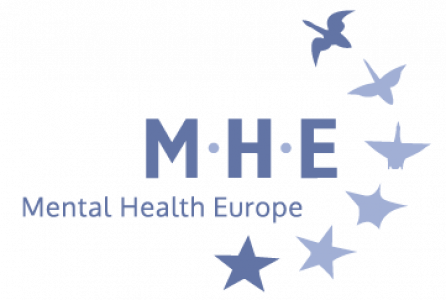
European Mental Health Week 2022: A Message from Stella Kyriakides, EU Commissioner for Health
By Eleni Karayianni, EFPA Executive Council Member
Mental Health Europe thanks partners and contributors for promoting, supporting, and contributing to EMHW with a message from Ms Stella Kyriakides, EU Commissioner for Health.
Read more about Mental Health wee and EFPA’s commitment on this edition under “In the Spotlight”
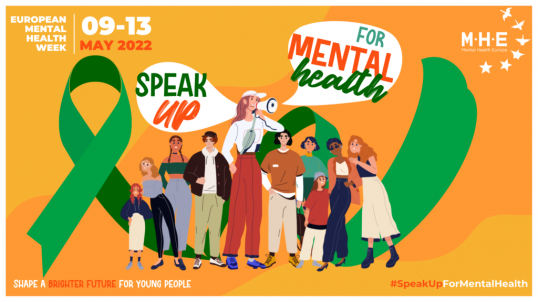
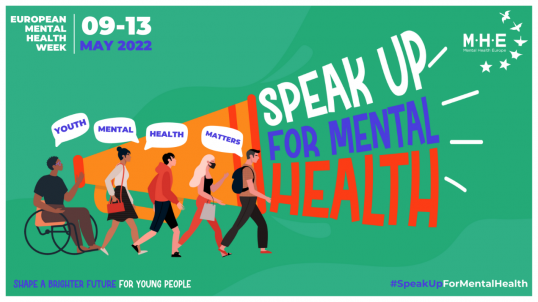
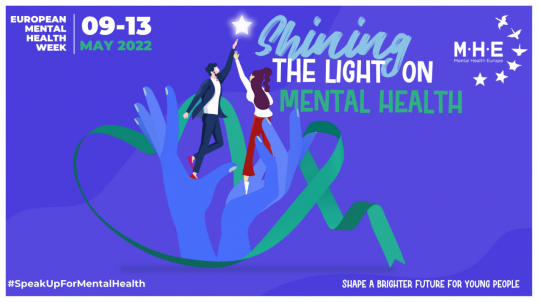
Back to top
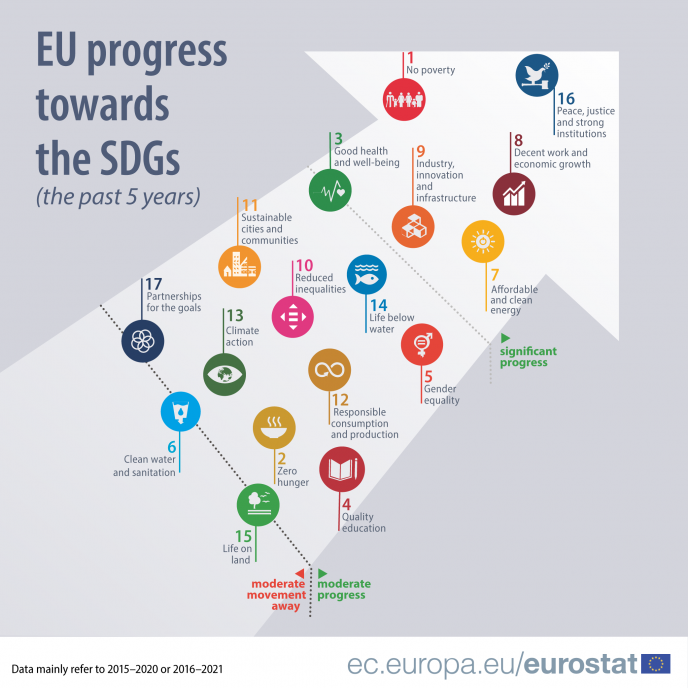
How has the EU progressed towards the SDGs?
May 23, 2022
Eurostat issues today the publication ‘Sustainable development in the European Union - 2022 monitoring report on progress towards the SDGs in an EU context’, which provides a statistical overview of progress towards the Sustainable Development Goals (SDGs) in the EU.
The EU made progress towards most goals over the last five years of available data. Progress in some goals was faster than in others, and movement away from the sustainable development objectives occurred only in specific areas.
More infomation _w588_h836_1.png)
Living and working in Europe 2021
May 9, 2022
The COVID-19 pandemic continued to be a defining force in the lives and work of Europeans for a second year in 2021, and Eurofound continued its work of examining and recording the many and diverse impacts across the EU Member States. Living and working in Europe 2021 provides a snapshot of the changes to employment, work and living conditions in Europe, as gathered by Eurofound’s research activities in 2021.
This yearbook also summarises the Agency’s findings on other challenging aspects of social and economic life – including gender equality in employment, wealth inequality and labour shortages – that will have a significant bearing on recovery from the pandemic, resilience in the face of the war in Ukraine, and a successful transition to a green and digital future. Eurofound’s research on working and living conditions in Europe provides a bedrock of evidence for input into social policymaking and achieving the Agency’s vision ‘to be Europe’s leading knowledge source for better life and work’.
Download the report (.pdf) here Blogs & newsletters
Here is a list of interesting blogs to follow and newsletters to subscribe to:
Clinical Psychology in Europe CPE
European Commission Newsletter eHealth, Wellbeing & Ageing
European Commission Public Health-EU: e-newsletter
European Parliament IMCO (Internal Market Committee)
European Social Network ESN
Health and Care Professions Council (UK)
Healthcare Professionals Crossing Borders HPCB
International Association of Medical Regulatory Authorities (IAMRA)
Ireland: CORU Regulating Health + Social Care Professionals (Ireland)
United Kingdom: Professional Standards Authority (UK)
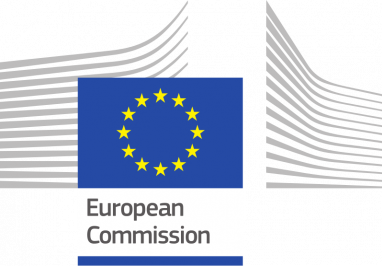
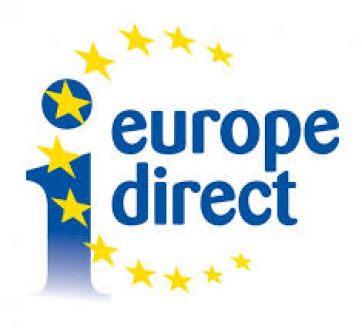
In person:
All over the European Union there are hundreds of Europe Direct information centres. You can find the address of the centre nearest you at: https://europa.eu/european-union/contact_enOn the phone or by email:
Europe Direct is a service that answers your questions about the European Union. You can contact this service:
by freephone: 00 800 6 7 8 9 10 11 (some operators may charge for these calls),
at the following standard number: +32 22999696 or
by email via: https://europa.eu/european-union/contact_en
EU publications
You can download or order free and priced EU publications here Multiple copies of free publications may be obtained by contacting Europe Direct or your local information centre

EU law and related documents
For access to legal information from the EU, including all EU law since 1952 in all the official language versions, go to EUR-Lex at:
http://eur-lex.europa.eu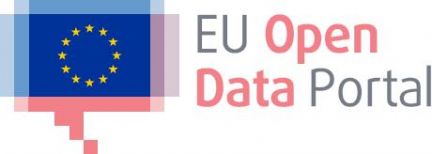
Open data from the EU
The EU Open Data Portal ( http://data.europa.eu/euodp/en)
provides access to datasets from the EU. Data can be downloaded and reused for free, for both commercial and non-commercial purposes.Back to top
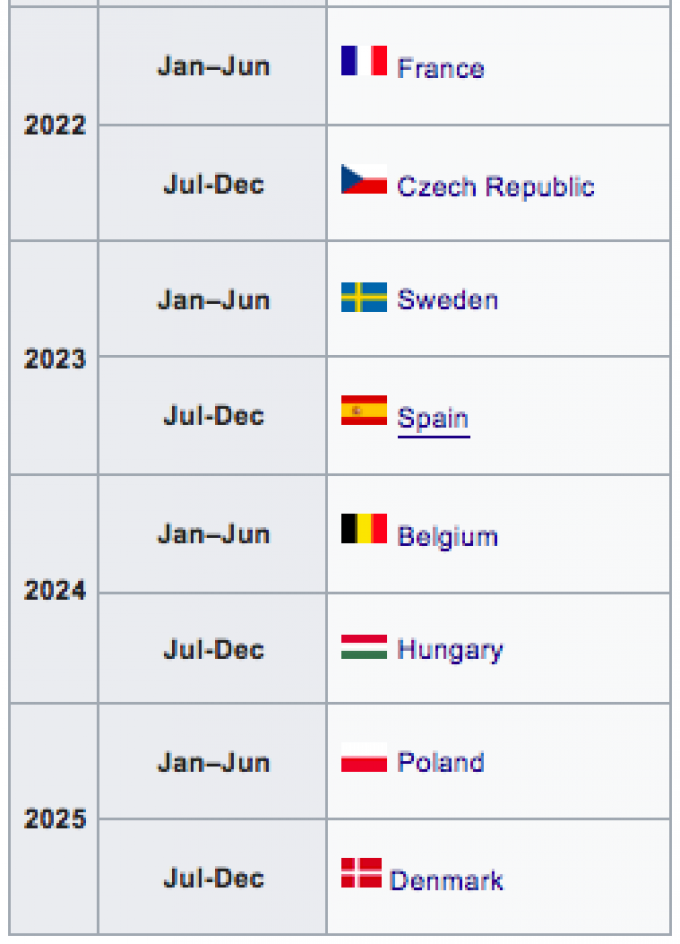
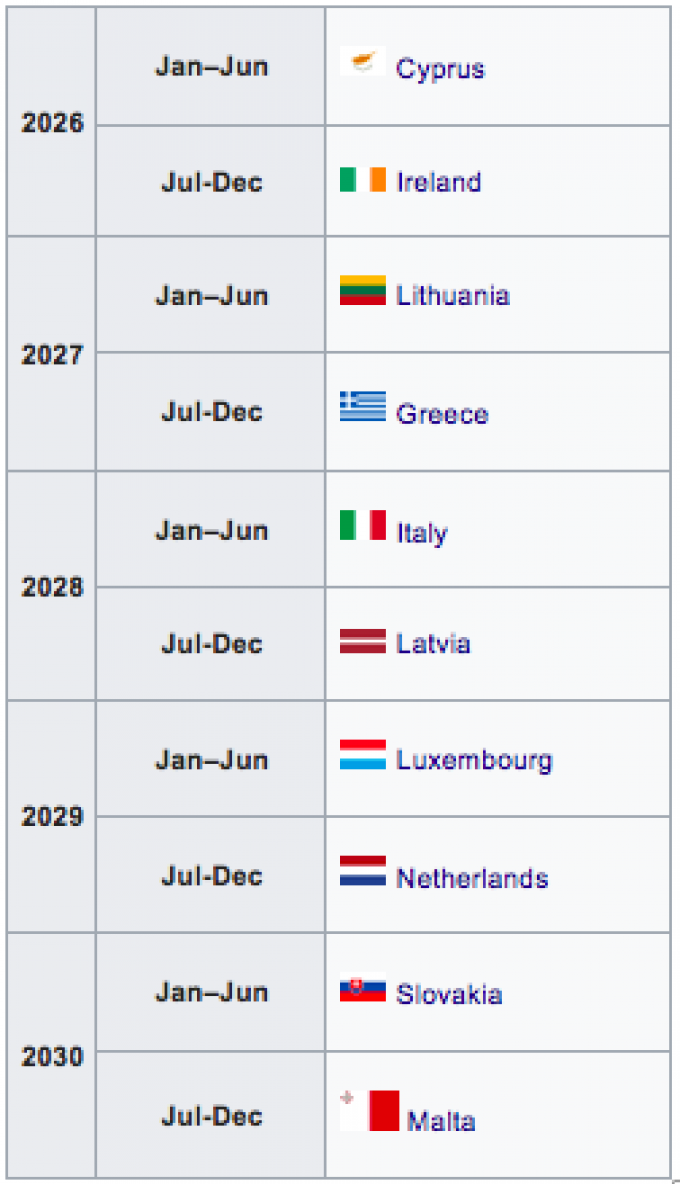
(1)_w1700_h406_1.png)
-

